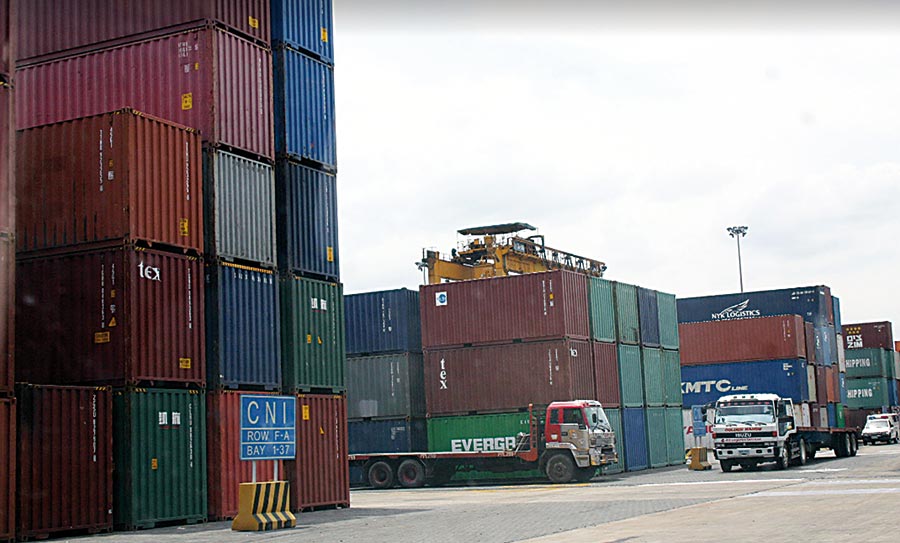President Marcos Jr. yesterday spelled out plans of his administration to make the country’s export industry a “strong and a highly-competitive pillar of the economy,” as he assured the global community the Philippines would be a reliable trading partner.
The President, in addressing the Department of Trade and Industry’s International Trade Forum held at the Shangri-La The Fort in Taguig City, said the Philippine Export Development Plan (PEDP) 2023-2028 would be the country’s main tool as it contains the strategies that will strengthen and improve the local export industry to make it more globally competitive.
The President emphasized the importance of leveling up the country’s “export game” by taking a whole-of-government and whole-of-nation approach.
“We have to bring up our game, our export game a little bit and support our exporters so that they can compete in foreign markets and that they are able to be not only suppliers but also industrial consumers of the products that are around the world. In other words, to strengthen trade,” Marcos told delegates.
Trade Secretary Alfredo Pascual, serving as chair of the Export Development Council (EDC), handed over to Marcos the council’s statement of commitment to implement PEDP 2023-2028. The PEDP was approved by the President last June 6.
Marcos said the PDEP is a result of the collaborative efforts of the exports community which came out with a “comprehensive, multifaceted and pragmatic plan that fleshes out the specific strategies to achieve the broad target of this administration’s agenda.”
He said with PEDP, the country will be able to double its current level of exports and transform the Philippine export industry into a significant economic engine that will generate over a million high-quality and sustainable jobs, boost micro, small and medium enterprises, and establish the Philippines as an “agile export powerhouse” by 2028.
The President acknowledged the country’s exports now continue to grow but despite this, the Philippines still lags behind its Southeast Asian neighbors when it comes to international trade.
“We still have to grapple with critical issues such as comparatively less diversified export portfolio and trade barriers and frictions. We have had several good export plans over the many decades. But nonetheless, we are still playing catch up in the global scene. It is high time that we confront and address these issues head on,” he added.
Marcos said that through the PEDP 2023-2028, the Philippines would allow the exports sector to become “not only suppliers but also industrial consumers of the products.”
“The reason why we’re doing this is we want to open markets that the Philippines will be able to export to and import from. So it is not one way. It’s a trade. That is the most important thing. What we have to do is to allow ourselves (to do) the restructuring of some of the elements that are within the law, that are within the rules so that we can compete on an even basis,” he said.
The President said the Philippines would use the country’s existing free trade pacts, including the Regional Comprehensive Economic Partnership (RCEP), to its advantage as well as proceed with other free trade agreements to expand the country’s global market access.
Marcos said the Philippines is set to sign a free trade agreement with South Korea soon while continuing negotiations with the European Union and the United States for the free trade deals.
He said the country would also strengthen its partnership with the private sector and the international community, in an effort to realize its goal of transforming the Philippines into a “prosperous, inclusive and resilient” nation by 2040.
The President said the stronger the country’s exports industry becomes the more it would result in “high, quality and stable employment opportunities, highly-competitive products and services, and of course, higher revenues.”
Marcos also said the country’s economic managers are also now studying the best practices of other nations that have been successful in their free trade agreements for their exports to learn from them and possibly adopt practices that are fit for the country.
“The best in trade now is in Asia. And that is our competitors. That is why we have to bring up our game, export game, a little bit and support our exporters so that they can compete in foreign markets,” he said in a media interview after the event.
The President also vowed to reinvigorate the Export Development Council (EDC), which can serve well as a proactive forum and effective command center for the efficient implementation of the PEDP, the monitoring of milestone accomplishments, and the systematic pursuit of the desired multi-sectoral approach.
Marcos also assured the export sector of the heightened government support that includes vital government interventions such as infrastructure, greater ease of doing business, promotion and marketing, financing, even legislative initiatives, among others.





